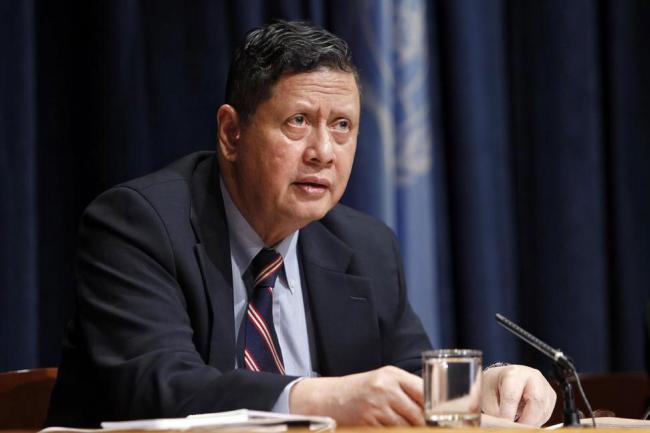
UN expert on DPR Korea warned 'nothing changed' two years after human rights report
“Regrettably, the human rights situation in the DPRK has not improved, and crimes against humanity documented by the Commission of Inquiry appear to continue,” UN Special Rapporteur Marzuki Darusman said in a press release, at the end of his last official mission to the neighbouring Republic of Korea (ROK).
“It is time to take stock of what has been done in the last two years and to move forward to pursue accountability for the crimes outlined in the report,” stated the expert, who will present his last report to the Human Rights Council in March 2016 before his mandate ends.
Darusman, who has been serving as the Special Rapporteur since 2010, was also a member of the Commission of Inquiry on human rights in the DPRK.
Since his appointment, he has made several requests to visit DPRK. However, access has so far not been granted.
“During this last mission, I discussed issues related to transitional justice with stakeholders in the ROK,” he said.
He added, “These discussions need to be further developed to adapt transitional justice process that suit the unique situation of the Korean peninsula, and also to ensure that there is accountability, as required under international law.”
The Special Rapporteur noted that, in the various meetings he held in Seoul, his attention was repeatedly drawn to the increasing difficulties faced by individuals from the DPRK as they cross the border to reach the ROK.
“In this regard, I am disappointed to learn that Russia signed an extradition treaty with the DPRK last week,” the expert stressed.
He added, “Despite Russia's assurance that this treaty will not be used to return anybody at risk of persecution, I am deeply concerned that it could de facto facilitate forced repatriation of DPRK asylum seekers. This may put the returnees at risk of serious violations, including torture.”
In late October this year, the reunion of families separated by the Korean War took place after a one and a half year gap.
“I had the opportunity to meet with a member of these families, who shared his experience - his hopes connected with the reunion, and also the disappointment it brought,” Darusman said.
He added, “He, and many others who have been separated from their family members are now elderly, and the issue requires urgent and practical solutions that are shaped with the participation of all affected family members. One cannot imagine psychological suffering of these families that there would be only one meeting in their lives.”
The independent expert stressed that “the separation of families is not only a humanitarian issue, but should be recognized as a human rights violation in and of itself,” as it continues to affect families in the two Koreas at multiple levels.
“I also had an opportunity to meet with youths – three from the ROK and three originally from the DPRK – and listen to their views of unification and possible accountability for serious human rights violations in the DPRK,” he noted.
He added, “I welcome the fact that that young people, as key actors in a potential future unification process, are actively engaging in these issues.”
In this connection, the Rapporteur underlined the crucial role of civil society in taking a lead role towards accountability for those most responsible for the Government's systematic denial of human rights.
“The issue of human rights in the DPRK is not something that can be tackled in the short term. Countless individuals have worked towards addressing these issues for decades,” Darusman said.
He added, “I pay the deepest respect to the individuals who continue their strive for the goal to protect human rights of people in the DPRK.”
During his five-day visit to Seoul, the expert met with senior officials from the Ministries of Justice, Foreign Affairs and Unification.
He also met with representatives of the Korea Institute for National Unification, Korean Institute for Criminology, Judicial Policy Research Institute of Korea, Korean Bar Association, parliamentarians, non-governmental organizations, persons who left DPRK and members of the diplomatic community.
“I thank the ROK Government for its support and excellent collaboration during my tenure as Rapporteur during the past five years. I also thank all the officials and civil society actors for our fruitful meetings during this mission, as well as the Office of the UN High Commissioner for Human Rights (OHCHR) in Seoul for its support,” he concluded.
Darusman will visit Japan in January 2016 on a similar assessment mission. He will then present his last report to the Human Rights Council in March 2016.
UN Photo/Paulo Filgueiras/www.justearthnews.com
Support Our Journalism
We cannot do without you.. your contribution supports unbiased journalism
IBNS is not driven by any ism- not wokeism, not racism, not skewed secularism, not hyper right-wing or left liberal ideals, nor by any hardline religious beliefs or hyper nationalism. We want to serve you good old objective news, as they are. We do not judge or preach. We let people decide for themselves. We only try to present factual and well-sourced news.







